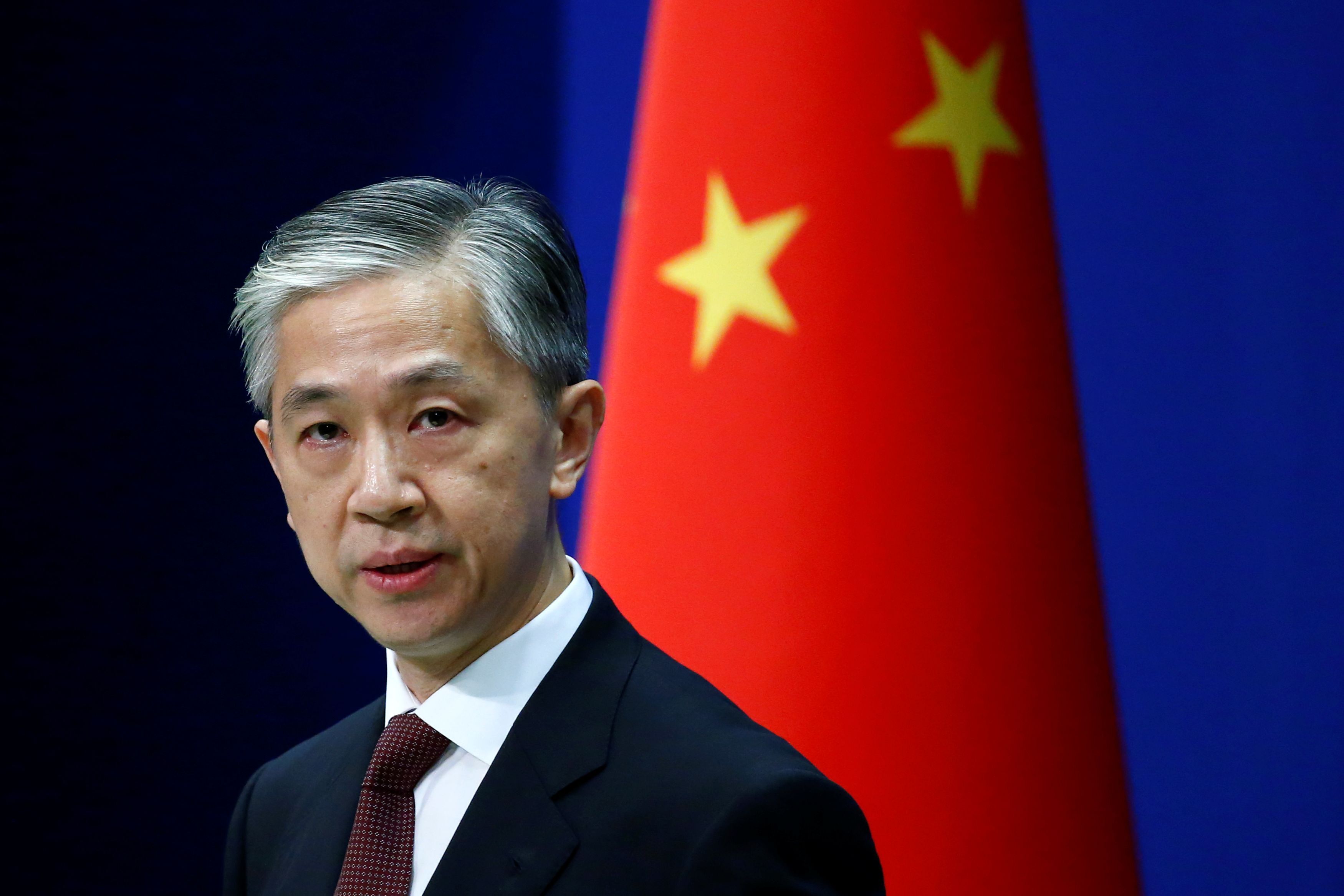Unreasoned sermonising
China’s uncalled-for and hypocritical remarks preaching India over Prophet row, possibly on Pakistan’s prompting, blatantly disrespect India’s sovereignty

In a not so surprising move, China has starkly interfered in India's domestic matters by making an unsavoury statement on the controversy regarding remarks made by a couple of Indian leaders on Prophet Muhammed. Significantly, the Chinese foreign ministry at its routine briefing on Jun 13, reacting to the development, stated that it hoped that the relevant incident could be properly managed. Chinese spokesperson, Wang Wenbin, also said that China's Foreign Ministry "noted relevant reports" before making the remark. Further, he averred that China believed that different civilisations and religions should respect each other and co-exist on an equal footing, and it is important to abandon arrogance and prejudice while promoting dialogue and harmonious co-existence.
It is noteworthy that China had come under criticism for its policies towards its own Muslims, particularly over sending hundreds of thousands of Uighurs to camps that Beijing termed as vocational training institutions. Many Islamic countries — including Pakistan, and Organisation of Islamic Cooperation (OIC) and the Gulf Cooperation Council (GCC) member countries — which have close trading relations with Beijing, have remained largely silent on the Uighurs' issue. Beijing has also hit out at Western criticism over Uighurs, describing it as interference in China's "internal" affairs. And now, it is sermonising India.
Analysts feel that the Chinese outburst has come in the wake of a specific Pakistan prompting aimed at roping in its all-weather friend China to come down harshly on India — criticising it for its alleged inept handling of the situation arising out of the anti-Prophet statements. Pakistan perhaps wanted to take China on board on this burning issue, as Pakistan failed to elicit enough support from the Islamic world, especially the Arab countries that didn't proceed in criticising India beyond a certain point. It is also felt that the global Islamic community did not want to upset India on the issue, fearing it would negatively affect the bilateral economic relations. This is precisely the reason for Pakistan seeking support from China. However, blaming India for mismanaging the situation does not suit China at all.
Coincidently, the relation between China and Pakistan, which has strengthened over the last 70 years, is currently witnessing a deepening of military ties under the new dispensation.
As tensions between China and the West deepen, military leadership of China and Pakistan, on Jun 12, stepped up their military cooperation, building upon what the official statement described as "strategic partnership" in challenging times. A high-powered Pakistani delegation comprising senior military officials from all the three services visited China (June 9-12) as part of the meeting of Pakistan-China Joint Military Cooperation Committee (PCJMCC). Pakistan's army chief and vice chairman of China's Central Military Commission are part of the committee. Chief of Army Staff (COAS) General Qamar Javed Bajwa joined the tri-service military delegation, and attended the apex committee's meeting along with top Chinese generals. The high-level military interaction between the two countries came at a critical juncture when tensions are deepening between China and the United States. Both sides discussed their perspectives on the international and regional security situation, and expressed satisfaction on defence cooperation between the two countries. Significantly, the current Pakistan army chief is the only military leader who visited China on the invitation of the Chinese president.
Pakistan now heavily relies on China for military equipment. Only recently, China provided Pakistan with J-10 fighter jets. Pakistan is the only country to have been provided the war planes since their induction into the Chinese military — showing deepening military ties between the two sides. There have been pressures on Pakistan to maintain some balance in the relationship between China and the West. But given the strategic interests of the US in the region and threats of a new cold war, it is becoming increasingly difficult for Pakistan to maintain that balance.
Coincidentally, earlier this week, the US and Chinese defense ministers held a meeting in Singapore on the sidelines of a regional security dialogue but the two sides ended up exchanging barbs over many issues including Taiwan and the Russia-Ukraine conflict. Pakistan has also faced crucial pressure from the West to change its stance on Russia-Ukraine conflict. Islamabad has so far walked a tightrope even after the change of government. Surprisingly, Foreign Minister Bilawal Bhutto has gone on record justifying ex-Prime Minister Imran Khan's Moscow visit coinciding with the start of the Russia-Ukraine military conflict.
In light of these developments, China's uncalled for statement made recently on anti-India remarks on the issue of Prophet Muhammed is nothing but a blatant interference into the internal affairs of India, which is in bad taste lacking any substance.
The writer is a retired IPS officer, a security analyst and a former National Security Advisor to the PM of Mauritius. Views expressed are personal



